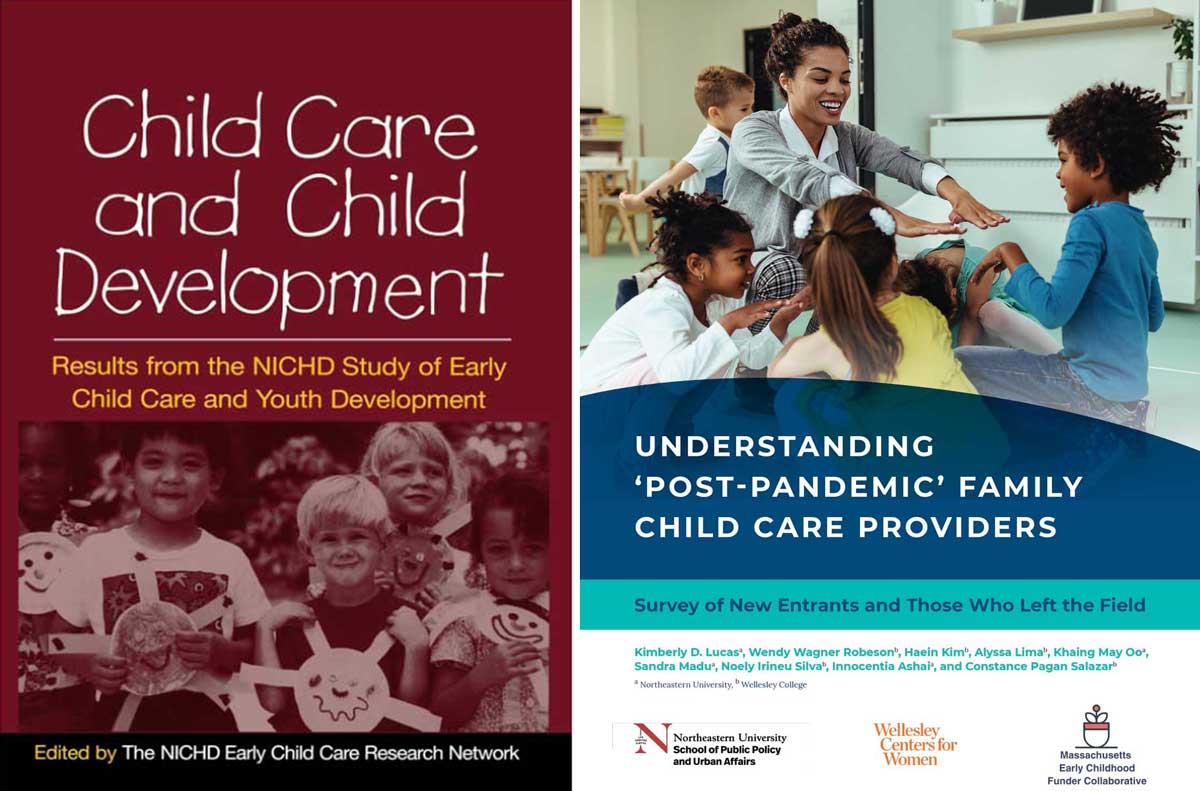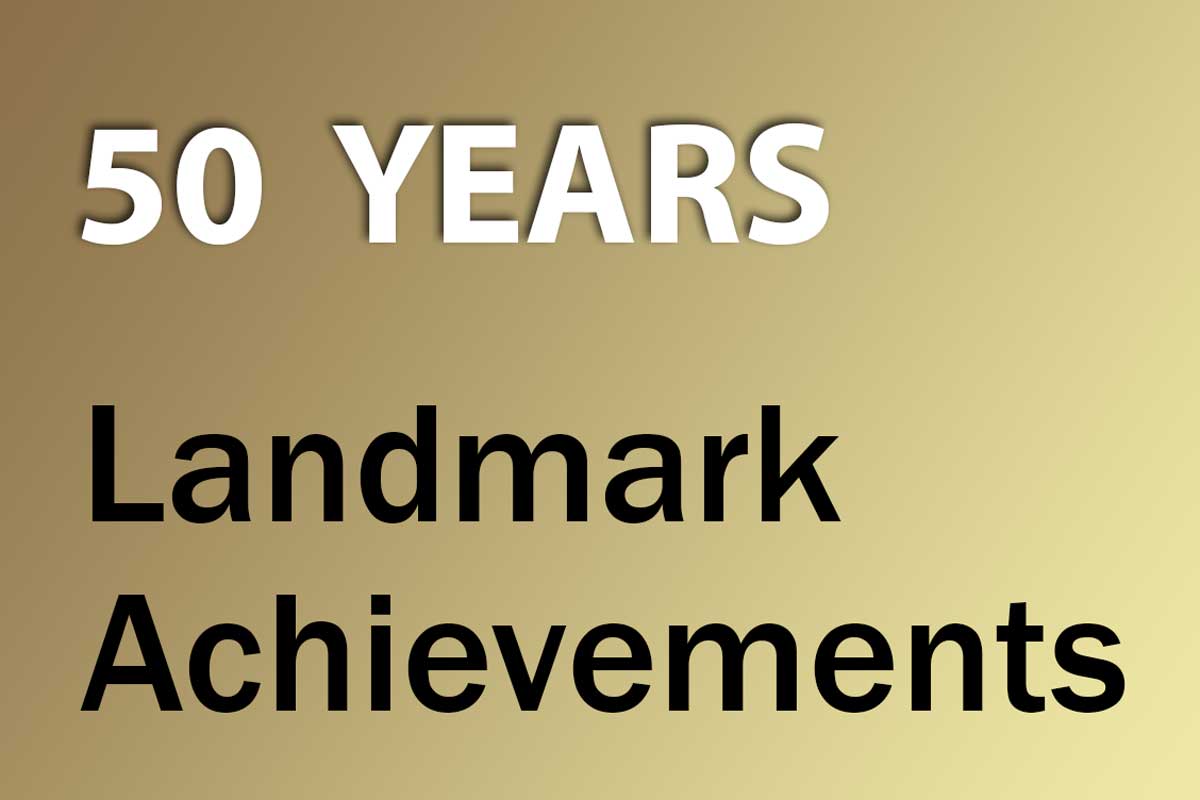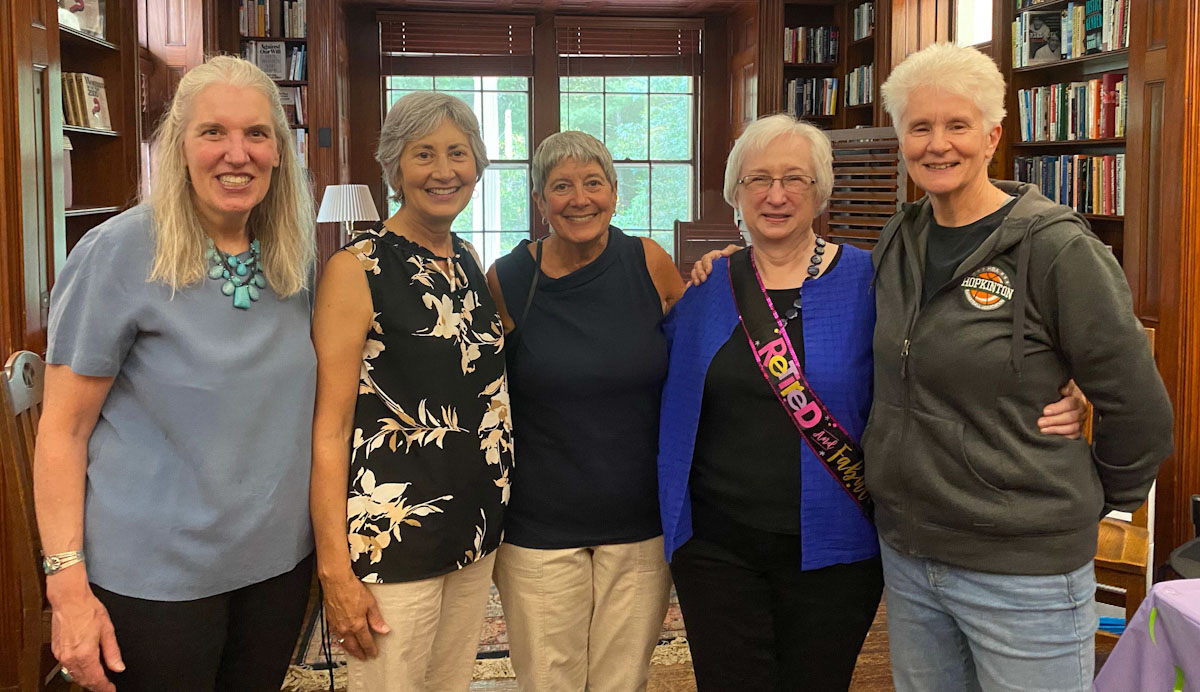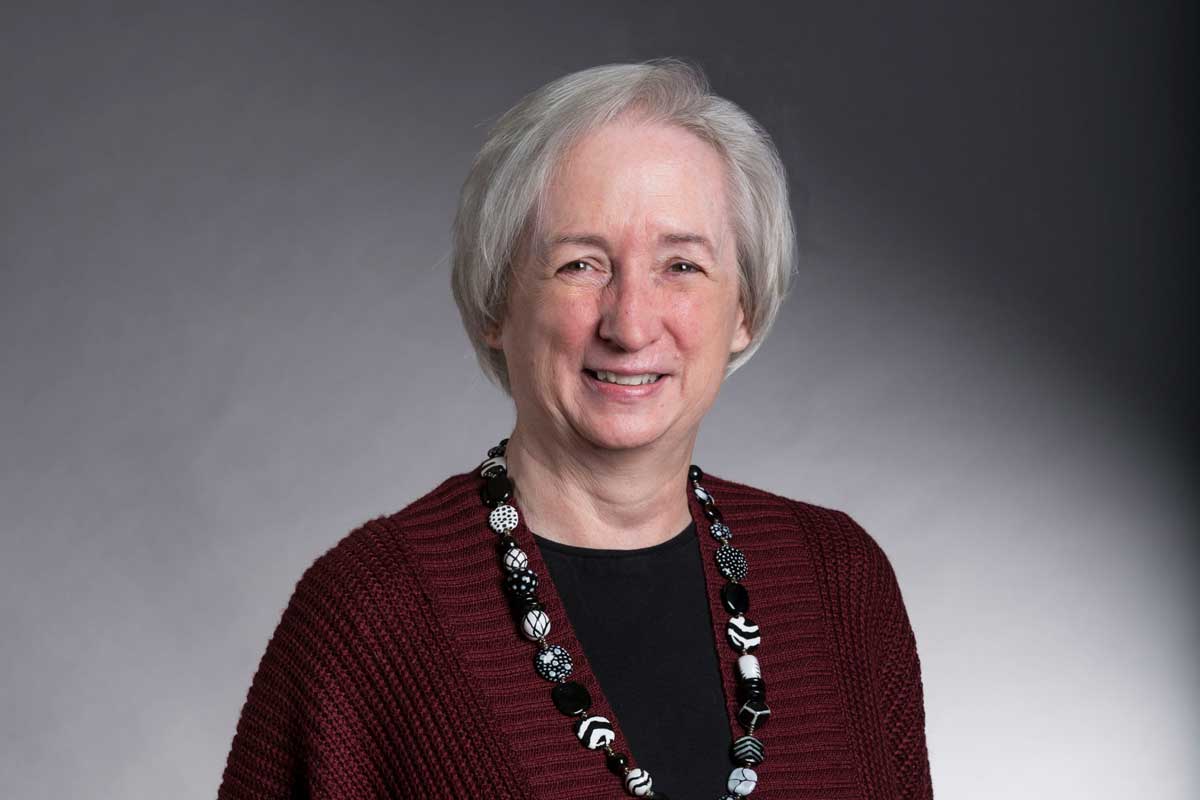 Beginning in 1991, we participated in a massive national study of whether child care harms children (it does not). Today, Wendy Wagner Robeson, Ed.D., is studying how to get home-based child care providers into the field and keep them there.
Beginning in 1991, we participated in a massive national study of whether child care harms children (it does not). Today, Wendy Wagner Robeson, Ed.D., is studying how to get home-based child care providers into the field and keep them there.
 From a study of how schools shortchange girls to our work on white privilege, these are some highlights from the past 50 years.
From a study of how schools shortchange girls to our work on white privilege, these are some highlights from the past 50 years.
 Photo caption: (L to R): Kathryn Wheeler, Kathy Schleyer, Ellen Gannett, Nancy Marshall, and Georgia Hall during Nancy Marshall's retirement celebration.In the fall of 2022, WCW celebrated the retirement of Senior Research Scientist Nancy Marshall, Ed.D., and Senior Strategist Ellen Gannett, M.Ed.
Photo caption: (L to R): Kathryn Wheeler, Kathy Schleyer, Ellen Gannett, Nancy Marshall, and Georgia Hall during Nancy Marshall's retirement celebration.In the fall of 2022, WCW celebrated the retirement of Senior Research Scientist Nancy Marshall, Ed.D., and Senior Strategist Ellen Gannett, M.Ed.
 A recent study investigated the complex connections between poverty, work schedules, parents’ selection of different types of child care, and work disruptions.
A recent study investigated the complex connections between poverty, work schedules, parents’ selection of different types of child care, and work disruptions.
 December 2, 2020
December 2, 2020
Senior Research Scientist and Associate Director Nancy L. Marshall, Ed.D., who is retiring after 35 years at the Wellesley Centers for Women, took a moment to reflect on her experiences.
 November 11, 2020
November 11, 2020
Our Work, Families & Children Research Group will examine how nonstandard and/or unpredictable work schedules make it difficult for low-income parents to access quality child care.
 March 16, 2020
March 16, 2020
Our Work, Families, & Children Research Group assisted with a report on child care accessibility and affordability in Boston.
Holly Bourque ’21 talks about doing research with Nancy Marshall, Ed.D., a senior research scientist, through Wellesley’s Social Science Summer Research Program.
For Immediate Release: January 22, 2014
For Immediate Release: January 2, 2014
Research & Action Report, Spring/Summer 2013
by Nancy Marshall, Ed.D.
May 25, 2013
When we think about employment and health, we often think about high risk jobs and occupational safety. The recent deaths of first responders in Massachusetts and Texas highlight these serious concerns. However, many workers are exposed to unhealthy conditions that, while not lethal, seriously affect their health.
Research Connections, March 28, 2013
Staff
 Hanna Bailey Boyle
Hanna Bailey BoyleResearch & Action Report, Spring/Summer 2012
Wellesley Centers for Women research and action initiatives are funded primarily by federal, state, and corporate grants and contracts. Several new and continuing projects received funding over the past six months.
Research & Action Report, Fall/Winter 2010
For many years, research done by the Work, Families, and Children Research Group at Wellesley Centers for Women (WCW) has provided policy makers, community leaders, and other scholars with data, commentary, and testimony concerning the effects on family members of many factors, including working conditions, poverty, the division of labor at home, and early care and education. Nancy Marshall, Ed.D., who joined WCW in 1985, now leads the group, which includes Wendy Wagner Robeson, Ed.D., and Joanne Roberts, Ph.D., senior research scientists at WCW.
by Nancy L. Marshall, Ed.D.
From the Fall/Winter 2003 Research & Action Report
Recent headlines have once again raised the question of whether child care is bad for children. After decades of research, advocacy, program development, and policy, what do we really know about child care? Before addressing this question, it is important to talk about the larger question: what do we really know about women’s (and men’s) lives? The question of child care can only be answered as part of a discussion about how women and men meet the two challenges of both raising the next generation and providing economically for themselves and their families.
Read more.
November 9, 2005
Op-Ed submission to the Boston Globe (unpublished)
by Nancy Marshall, Ed.D. and Steve Barnett, Ed.D.
March 30, 2005
The creation of the Department of Early Education and Care, developed to administer the Massachusetts’ early education care system, puts the state at a critical juncture in advancing its historic commitment to young children. On July 1st, the new department becomes active, and its Board and Commissioner will have the tough task of deciding how to proceed. Well-trained, qualified teachers and providers are necessary for programs to promote children’s school readiness. The recently released Massachusetts Capacity Study Research Brief: Characteristics of the Current Early Education and Care Workforce provides research-based evidence of the magnitude of the task of workforce development.
Boston Globe
February 6, 2006
April 3, 2005